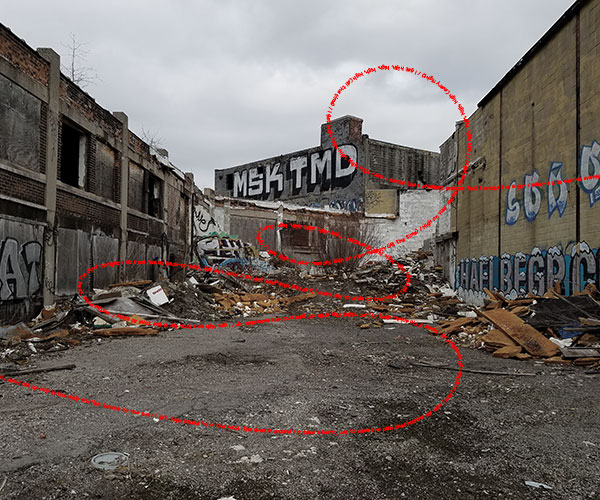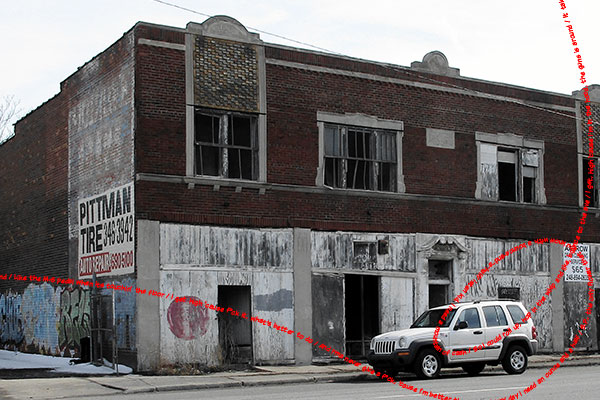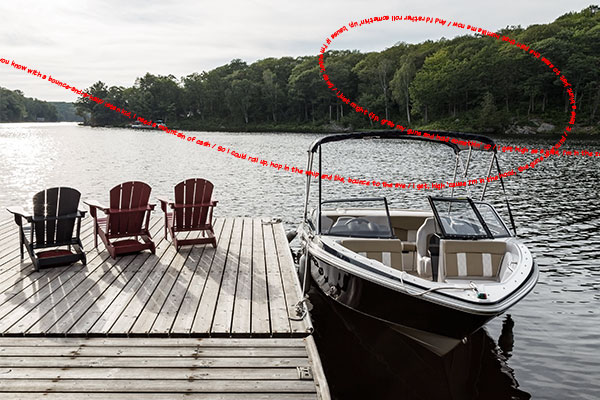Subtotal: $
Checkout-

Militant Peacemaking
-

Peacemaking Is Political
-

Beyond Pacifism
-

A Life That Answers War
-

Excerpt: Freiheit!
-

Did You Kill Anyone?
-

Poem: “Candid”
-

Poem: “March Thaw”
-

The Minimalist
-

Call to Prayer, Call to Bread
-

Editors’ Picks: Charis in the World of Wonders
-

Editors’ Picks: The Reindeer Chronicles
-

Editors’ Picks: I Ain’t Marching Anymore
-

Editors’ Picks: “Floaters”
-

Poetry You Can Touch
-

Poem: “Annuals”
-

Poem: “The Widow Offers Herself to Life”
-

Poem: “Mary Magdalen Responds to the Harsh Judge”
-

Poem: “In Retrospect”
-

Poem: “A Backward Look”
-

Poem: “Where Nectar Was”
-

Felix Manz
-

Covering the Cover: The Violence of Love
-

The Case for Meekness
-

Letters from Readers
-

Learning Generosity in Syria
-

A Tireless Peacemaker
-

Turning a Corner
-

Behind the Black Umbrellas
-

With Love We Shall Force Our Brothers
-

The Risk of Gentleness

The Great Escape
For those trapped in the violence of poverty, rap tells heroic tales of breaking free.
By Zito Madu
April 20, 2021
In 2002, the rapper Styles P released what is his most popular and memorable song, “Good Times.” The song’s title is ironic, and the chorus, which features a high-pitched voice singing I get high, high, high, is misleading. The lyrics don’t celebrate good times, nor do they celebrate smoking the weed the singer describes in detail. In fact, the song is exceedingly sad. It is full of violence and pain, the smoking a form of self-medication.
“Good Times” has stuck with me because it captures the relationship between poverty and violence so well. In three verses, Styles P clearly details how poverty is an inherently violent situation, setting the stage for individual violence as it destroys the ability to imagine other ways of being. This is a common theme in rap, but this song is startlingly honest about early death as the result of that dynamic.
Rap is fantastical; life in the songs tends to be exaggerated and extreme. In “We Gonna Make It,” Jadakiss doesn’t just own a fancy house – in his house his “bathtub lift up” and his “walls do a 360.” And he didn’t just sell drugs, he “ran through enough coke for Castro to build schools in Cuba.”
Rap music and its artists have come under heavy criticism for those fantastical elements, especially when it comes to violence. Rappers are always killing hundreds of abstract enemies in songs, and buying wildly inflated numbers of high-powered guns. The criticism has come not only from those who see rap as evidence of Black degeneracy, including the FBI, but even from more “conscious” rappers who see violence-as-entertainment as both inauthentic and a disservice to Black culture.
I think of rappers as great American storytellers.
The latter critics have a point – this is an uncomfortable entanglement. It allows people who aren’t close to Black culture to pretend that the music is a realistic depiction of American Black life. Its popularity contributes to a vicious cycle where the market demands that type of music, enriching mostly White executives, while Black artists are abandoned when the industry no longer sees them as worthwhile. Take Bobby Shmurda, who made hit songs for Epic Records, which he said reflected his real-life experiences. When he went to prison on weapons charges, the label that had profited from the underlying violence abandoned him – not before making him (literally) dance on the table for executives’ amusement.
Rap has real problems, and some criticisms, of bigotry and misogyny, are valid. But I think of rappers as great American storytellers. They structure their work around rags-to-riches tales, that most American narrative of overcoming circumstance and reaching success through talent and hard work. Their stories can be heroic, too, in the exaggerated tradition of folktale, with struggles against tragic circumstance or great beasts in the form of grim conditions or implacable haters. Mariah Carey’s description of Jay-Z as “the epitome of the American dream” may be applied to other great rappers: “He’s been fighting all his life. He has taken his talent and his creativity and … done things that are pretty much unparalleled.”
But rap is more like literary fiction than pure fantasy; its monsters are real. In “Good Times,” Styles P dials the fantastic down to honesty: “I get high ’cuz I’m in the hood, the guns is around / It take a blunt, just to ease the pain and humble me down,” he begins. Then he leans into fantasy about the violence he could do if sober, out of frustration with his situation, “and I’d rather roll something up; ’cause if I’m sober dawg / I just might flip, grab my guns and hold something up.” Life is precarious: “I get high as a kite; I’m in the zone all alone / Muthafucka case I’m dying tonight.” And there’s no escape: “I get as high as I could / ’Cuz if you see things, like I see things … I’ma die in the hood.”
Tupac’s metaphor for his survival was to call himself “the rose that grew from concrete.” Nipsey Hussle ties the flower to self-medication on “Dedication”:
Red rose in the gray pavement
Young black nigga trapped and he can’t change it
Know he a genius, he just can’t claim it
’Cause they left him no platforms to explain it
He frustrated so he get faded.
Meek Mill summarized the whole ordeal, the condition of poverty, its various traps, and the frustration of trying to escape and cope with them, in “Championships”:
How could you blame me? When I’m tryna stay alive and just survive
and beat them odds when niggas die by twenty-five …
Tryna to smoke the pain away, they lock us up for smoking
Put ’em on probation, lock ’em up if you ain’t perfect
Victims of the system like a raindrop in the ocean
They closin’ all the schools and all the prisons gettin’ opened.

Photograph by sharghzadeh
The power of the heroic tale lies in the hope that greatness is only a matter of determination. André Gide’s Oedipus, speaking in Gide’s retelling of the Greek myth in Two Legends, captures it well:
As if I had ever sought happiness! It was to escape from it that as a boy of twenty I ran away from Polybius on my toes, with fists clenched. None can say how beautiful was the dawn above Parnassus as I went forward in the dew to hear God’s oracle. I had nothing but my own strength to help me, and I didn’t yet know who I was, but with all the possibilities of my being I was rich enough.
The young Oedipus sees the infinite potential of his life as a great wealth; he doesn’t know that his fate is already sealed. But when all has come to pass and he blinds himself, he realizes: “Before even I was born, the trap was laid, and I could not but fall into it. For either your oracle was lying or I had no possible escape. I was caught.”
Like Styles P, Oedipus is trapped, but there’s an enormous difference. Before he was a king, Oedipus was a prince, by birth and adoption. His story is tragic and he suffers greatly, but when he dies, his grave is made sacred to the gods. He was doomed, but he was pitied by the highest powers. There’s no great tragedy to be written of a young Black kid who doesn’t survive. As Meek Mill says, he’s a raindrop in the ocean.
For Black Americans, the violence of poverty can’t be disentangled from the racism of history. All the way through life, indignity is made worse by bigotry, with gross inequalities built into the education, housing, finance, healthcare, policing, and carceral systems, and more.
The coronavirus pandemic has disproportionately devastated Black communities. In a late 2020 piece for the Atlantic, Ed Yong explains why, going back to the thwarted Reconstruction era through the present day to show how Black Americans have been repeatedly, intentionally, and structurally denied access to healthcare. On top of existing disparities, this vulnerability means that Black Americans have been dying of Covid-19 at “a rate more than twice that of white Americans. That figure is both tragic and wholly expected given the mountain of medical disadvantages that Black people face.” There are those who shrug all this off – in America, where individual responsibility is the great myth, weakness is held as a sign of personal or collective failing. This notion is intertwined with the national deflection of the effects of racism and White supremacy, and how that ideology still shapes society.
It’s often argued that elevated rates of poverty and violence are evidence of a corrosive culture. In a 2017 essay arguing against this idea, Jamelle Bouie cited sociologist Patrick Sharkey, who found that “relative to whites, African Americans of all income and educational levels have seen a remarkable amount of downward mobility over the last forty years.” Sharkey also found that “even if a white and a black child are raised by parents who have similar jobs, similar levels of education, and similar aspirations for their children, the rigid segregation of urban neighborhoods means that the black child will be raised in a residential environment with higher poverty, fewer resources, poorer schools, and more violence than that of the white child.”
Khalil Gibran Muhammad tackled that same argument in his New York Times review of A Peculiar Indifference: The Neglected Toll of Violence on Black America by Elliott Currie. Muhammad takes the dynamic that rappers point out – that systematized injustice is a sort of violation that leads to individual violence – and shows how it’s flipped in the racist assumption that violence is naturally inherent in Black people:
White domination rests at the center of this maelstrom of enduring and endemic violence. And yet, whether most white Americans admit it or not, they consider Black people both the deserving victims and the dangerous vectors of violence, who bear the burden and the blame for much of the nation’s exceptional record of death and destruction.
The trap of being Black and poor is designed into the system. It is worse than a trap laid by far-off gods, as it is laid by other humans. Dignity is stripped from those who find themselves born into it and there is no distinction even in death.
Oedipus might imagine infinite possibility, since the world seems open to him until the end of his life, but someone like Styles P knows much better about the path before him. With cruelty as the accepted order of things, the countless people who fall victim to it barely register; if anything, they are blamed for their condition to begin with. Those who don’t survive are simply raindrops in the ocean.

Photograph by hajee
Most of my time listening to rap as a teenager was during the morning drives when my father took me to one school and my siblings to another – Cass Tech, the most prestigious public high school in Detroit, whose students had to pass an entrance exam and maintain a 3.0 GPA. Fighting meant expulsion. I lasted just a year at Cass before moving on to Northwestern, where I was among the mass of average children from the city, poor Black children of poor parents.
When I went from Cass to Northwestern, it upset my parents and was a source of familial shame. But these days I tell them that I am grateful for that fall into the general population. At Northwestern, I felt more at home than I did at Cass; I was able to see how the frustrations of poverty and being trapped in a limited life led to outbursts of violence. I saw how hard teachers, principals, and counselors worked to save as many as they could, fighting against so many inequalities of resources, and how easily children could fall behind and be disregarded as unsalvageable. My friends whom I loved.
There is a joy that comes from seeing friends who make it – who live lives that outside the context of poverty would be considered commonplace.
Northwestern was dangerous. There were fights, shootings, drinking, unsafe sex, police officers constantly circulating outside and inside the school, and occasionally actual deaths. There was fun and joy as well, but ever-present tension, especially because I knew the kids there as full people with ambitions and baggage which limited them. The trap was no more escapable for being clearly visible.
Rap music that comes out of this background acts as a platform for grief; it’s survivor’s remorse music. In the same albums where rappers are talking about violence, multiple cars, women, guns, and their endless money, they’re also mourning. Styles P eulogizes his younger brother: “Life is a circle of pain / The darkest clouds end up like the purplest rain / They say patience is a virtue in the game / Fuck it, I guess I died when my brother died.”
In “Love My Life” Cam’ron pays homage to his cousin who died in 1997. Biggie Smalls dedicated the song “Miss U” to a friend he was trying to help escape the drug game who was killed instead. Nipsey Hussle himself was shot and killed in 2019 and has been eulogized in numerous rap songs. Dr. Dre dedicated “The Message” to his brother, Tyree Du Sean Crayon, who was killed in a street fight. One of the most iconic rap songs, “They Reminisce Over You (T.R.O.Y.)” by Pete Rock and CL Smooth, was inspired by the death of their close friend, Troy Dixon. In “Life Goes On,” Tupac eulogizes numerous friends who died or went to jail, saying, “But now that you’re gone, I’m in the zone / Thinking I don’t wanna die all alone, but now you gone / And all I got left are stinkin’ memories.”
The list could go on forever. Rap is filled with songs about relatives and friends who have died or disappeared into jails, and because the rappers tend to understand the role luck played in their own escapes, they feel they could still fall victim to the same violence. Styles P’s paranoia that he will die in the hood is a shared anxiety in rap.

Andrew Rubtsov / Alamy
A few years ago, I wrote about Malcolm, a friend of mine from Northwestern. In twelfth grade, when I had grown out of fighting and had the possibility of going to college and being more than I had imagined, I asked him if maybe he should do the same. He knew, he told me, that he was going to die doing what he was doing. And he did.
I have the same sadness for my own friend that I have when I hear “Good Times” by Styles P. Not just that I wish each of them saw beyond the world that poverty had given them, but also that what they said could be false. The worst thing about their declarations isn’t that they’re fatalistic or self-fulfilling, but that from all the consequences of poverty and racism, and how our society is structured and who it is built to crush, what they said is generally true.
Along with the grief of survivor’s guilt, I also instinctively understand the extreme hedonism. It’s as if those who didn’t imagine they could make it, and then do, are intoxicated by that great escape – going from limited life to an overindulgence of it. But beyond the fantastical, there is a joy that comes from seeing friends who make it – who live lives that outside the context of poverty would be considered commonplace.
A year ago, I was a groomsman at my best friend’s wedding in Kingsport, Tennessee. We hadn’t seen each other in a long time. He now works as an engineer and has a nice lake house, car, and boat. As I gave my toast after the wedding, I was so overjoyed by the deceptively mundane things that he was experiencing. That he could go to work, go home, watch movies with his wife, and live comfortably enough to never worry whether the money he has will be enough, or if he will be a victim of random violence, makes me very happy.
And sometimes I check up on Styles P on social media to see how he’s enjoying life. He has a few juice bars around New York, still makes music, and often talks about health and fitness. It seems very ordinary, far from the extreme hedonism and success that his own lyrics talk about, but it is its own wonder, at a great distance from the limits ordinarily set on a poor Black individual.
Nothing will be solved by exceptions: for each one who makes it, there are many more who don’t. Still it is always wonderful to see the ones who manage to escape, to see them get to a place of stability and comfort. Knowing where they came from makes even the most banal things, like Styles P taking walks in nature and doing videos about healthy eating, seem actually magical. The ordinary magic of waves lapping at the shore.
Already a subscriber? Sign in
Try 3 months of unlimited access. Start your FREE TRIAL today. Cancel anytime.










































JoeR
Sorry, I’m not with you on this one.
Peggy Mulligan
I really enjoyed it. I want to suggest that you record your father's stories and also look into Story Corp to share his stories with the world. Who doesn't like a good story.